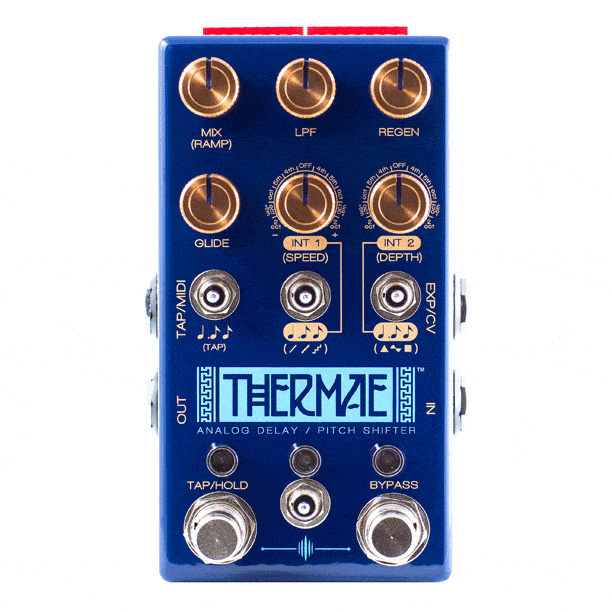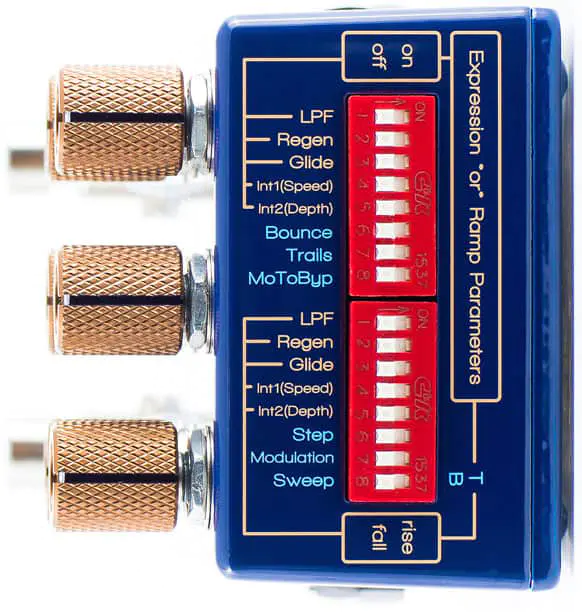
Chase Bliss Audio, who did extremely well with their highly regarded Tonal Recall delay units, is taking analog delay to a new place with the Thermae, a pedal based on 4 re-issued versions of the MN3005 bucket-brigade delay chips, but controlled by a “digital brain” that triggers a wide range of pitch-shifting and modulation effects.
The Thermae has the ability to change delay time in interesting intervals which allows for innumerable harmonizing options. Intervals can be sequenced through automatically, or triggered manually. It can also be used as a more standard analog delay with modulation.
As with all the pedals produced by the Minneapolis manufacturer, 16 DIP switches on the back panel of the pedal offer a host of useful functions, while tap tempo and Midi integration round up a pedal that – in the right hands (and feet) – can become a true goldmine of inspiration.
Check out some of the best video demos of the Chase Bliss Audio Thermae, below.
Just two days after announcing the Condor EQ, the folks at Chase Bliss Audio dropped this stunning video (shot by Knobs in the Roman spa of Bath, UK) announcing their new Pitch Shifting Delay called Thermae, check it out!
Joel from Chase Bliss came over to our Stompbox Booth at NAMM top shoot this video of the new, outstanding delay/pitch shifter Thermae, check it out!
Chase Bliss Audio Thermae, Builder’s Notes
Thermae represents a radically new approach to analog delay and harmonization.
The pedal digitally manipulates an analog signal path created by 4 re-issued versions of the legendary MN3005 bucket-brigade delay chips. This creates the ability to change delay time in musically interesting intervals which allows for innumerable options for harmonizing and other sonic madness. These intervals can be sequenced through automatically, or triggered manually for ultimate usability in a musical context.
Thermae can also be used as a more standard analog delay with unprecedented analog modulation options. Every knob and switch is connected to a little digital brain while your guitar signal stays 100% analog and never gets digitally processed.
























1 comment
Xerocky says:
Jan 20, 2018
Where can I get more 3005s?